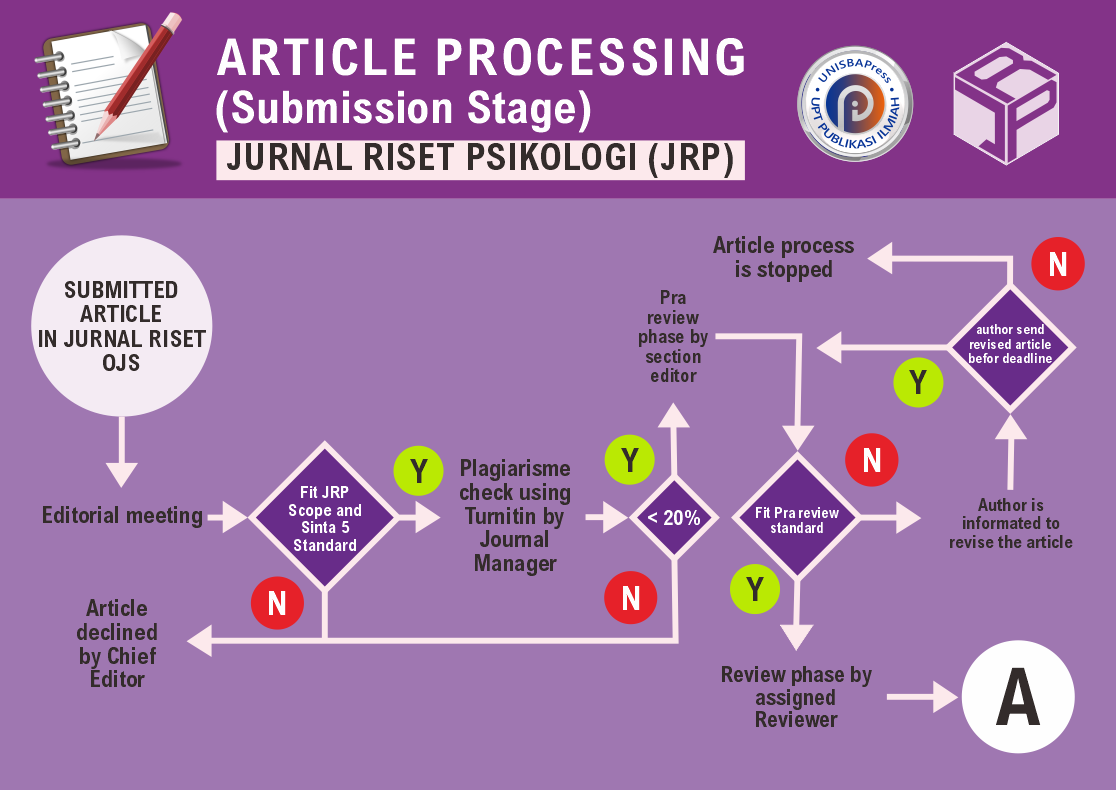Pengaruh Kecerdasan Emosi terhadap Kekerasan dalam Pacaran Pada Mahasiswa di Kota Bandung
DOI:
https://doi.org/10.29313/jrp.v3i2.2954Keywords:
Emotional Intelligence, Dating Violence, Kota BandungAbstract
Abstract. Dating violence is defined as the act of how often an individual gets violent treatment on the basis of intention and coercion which can cause physical, psychological and sexual injuries by their partners. Emotional intelligence is defined as an individual's ability to recognize and control emotions, have self-motivation, be sensitive to the emotions of others, and the ability to establish relationships with others. This study aims to see the effect of emotional intelligence onvictim Dating violence on college students in the city of Bandung.Then, This research is a causality study with a quantitative approach involving 75 men and 264 women as respondents. This study uses two measuring tools, namely,The Revised Conflict Tactics Scales 2 to measure courtship violence and Emotional Intelligence Inventory (EII) to measure emotional intelligence. The data analysis used is multiple linear regression. The results obtained are that there is an influence of emotional intelligence on victims of dating violence on students in the city of Bandung. The most widely accepted type of violence is emotional and verbal abuse in the form of an overprotective attitude and possessive.
Abstrak. Kekerasan dalam pacaran didefinisikan sebagai tindakan seberapa sering individu mendapatkan perlakuan kekerasan atas dasar kesengajaan dan paksaan yang dapat menyebabkan luka secara fisik, psikologis, dan seksual oleh pasangannya. Kecerdasan emosi didefinisikan sebagai kemampuan individu untuk mengenali dan mengontrol emosi, memiliki motivasi untuk diri sendiri, peka terhadap emosi orang lain, dan kecakapan untuk menjalin hubungan dengan orang lain. Penelitian ini memiliki tujuan untuk melihat pengaruh kecerdasan emosi terhadap korban kekerasan dalam pacaran pada mahasiswa di Kota Bandung. Kemudian, Penelitian ini merupakan penelitian kausalitas dengan pendekatan kuantitatif yang melibatkan 75 orang laki-laki dan 264 orang perempuan sebagai responden. Penelitian ini menggunakan dua alat ukur yaitu, The Revised Conflict Tactics Scales 2 untuk mengukur kekerasan dalam pacaran dan Emotional Intelligence Inventory (EII) untuk mengukur kecerdasan emosi. Analisis data yang digunakan adalah regresi linier berganda. Hasil yang didapatkan adalah terdapat pengaruh kecerdasan emosi terhadap korban kekerasan dalam pacaran pada mahasiswa di Kota Bandung. Jenis kekerasan yang paling banyak diterima adalah kekerasan emosional dan verbal dengan bentuk sikap overprotective dan posesif.
References
Abbot, M.R. (1992). Masculine and Feminine, Second Edition. New York: Mc Graw-Hill Inc.
Straus, A.M (2004). Prevalence of Violence Against Dating Partners by Male and Female. Journal of violence against woman
Anantri, K. M. (2015). Analisis Faktor-faktor yang Mempengaruhi Remaja Putri terhadap Perilaku Kekerasan dalam Pacaran di SMA “X” Kota Semarang. Jurnal Kesehatan Masyarakat, 3(3).
Lucky, M. P. (2017). Hubungan Antara Kecerdasan Emosional Dengan Kekerasan Dalam Pacaran Pada Siswa Kelas XII Bahasa dan XII IPA 1 SMA Kristen 1 Salatiga
Goleman, D. (2000). Emotional Intelligence (terjemahan). Jakata : PT Gramedia Pustaka Utama.
Mayer, J.D., Caruso, D., & Salovey, P. 2004. Emotional Intelligence: Theory, Findings, and Implications, psychological Inquiry, Vol. 15 No. 3, 197-215. Lawrence Erlbaum Associates, Inc.
Brackett, M. A., Warner, R. M., & Bosco, J. S. (2005). Emotional Intelligence and Relationship Quality among Couples. Personal Relationships 12 , 197-212.
Nisa, Saadatun & Sedjo, Praesti. (2010). Konflik Pacaran Jarak Jauh pada Dewasa Awal. Jurnal Psikologi, 3(2), 134-140
Chansa, M. T. (2017). Hubungan Kecerdasan Emosi terhadap Niat Mengatasi Kekerasan dalam Pacaran pada mahasiswa di Kota Semarang. Jurnal Kesehatan Masyarakat. http://ejournal-s1.undip.ac.id/index.php/jkm
Papalia, Old, & Feldman.(2008). Human development. New York: McGraw- Hill.
Yunalia, E. M., & Etika, A. N. (2020). Analisis Perilaku Agresif pada Remaja di Sekolah Menengah Pertama. Journal Health of Studies, 4(1), 38-45. DOI:10.31101/jhes.1358
Luo, S. (2009). Partner selection and relationship satisfaction in early dating couples: The role of couple similarity. Personality and Individual Differences, 47, 133-138. Doi: 10.1016/j.paid.2009.02.012
Luthra, R., & Gidycz, C. A. (2006). Dating Violence Among College Men and Women: Evaluation of a Theoretical Model. Journal of Interpersonal Violence, 21(6), 717– 731. https://doi.org/10.1177/0886260506287312
Wijono, S., Hunga, A. I. R., & Angin., S. P. (2020). Decisions to Stay or Leave an Abusive Relationship: A Case Study Research of Dating Violence in Salatiga, Indonesia. http://dx.doi.org/10.4108/eai.10-7-2019.2296395
Fass, D. F., Benson, R. I., & Leggett, D. G. (2008). Assessing prevalence and awareness of violent behaviors in the intimate partner relationships of college students using internet sampling. Journal of College Student Psychotherapy, 22(4), 66–75. https://doi.org/10.1080/87568220801952248
Cava, M.-J., Buelga, S., & Tomás, I. (2021). Peer Victimization and Dating Violence Victimization: The Mediating Role of Loneliness, Depressed Mood, and Life Satisfaction. Journal of Interpersonal Violence,36(5–6),2677–2702. https://doi.org/10.1177/0886260518760013













